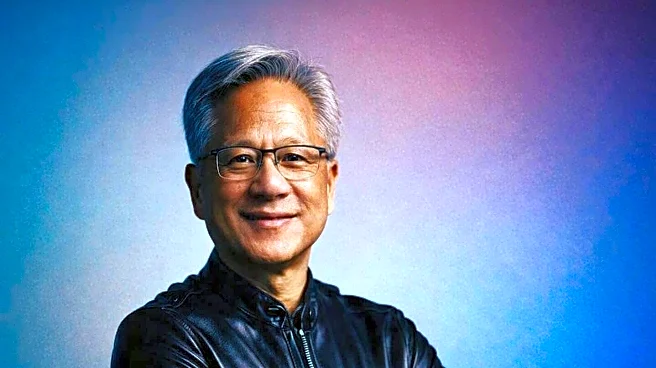When a 14-year-old from a sleepy Bihar village captures the nation’s imagination, you know cricket’s next fairy tale has just begun. Vaibhav Suryavanshi isn’t your typical prodigy with academy-polished
skills and a glossy sportswear deal. He’s the barefoot boy who turned his home’s dusty courtyard into a makeshift practice pitch, the same boy now making national headlines for his fearless batting and infectious energy. As India prepares for the upcoming U19 Triangular Series beginning November 17 in Bengaluru, one name that continues to echo—despite his absence from the squad—is that of Vaibhav Suryavanshi. The Board of Control for Cricket in India (BCCI) recently announced the squads for the India A U19 and India B U19 teams, alongside Afghanistan U19. But the teenage sensation from Samastipur was not listed. The reason? He’s already moving on to a bigger stage—the ACC Rising Stars Asia Cup in Doha, where he’ll represent India A under the leadership of Jitesh Sharma. And while fans will miss his blistering strokes in Bengaluru, Vaibhav is gearing up to make India proud once again, this time on an international platform.
From Tajpur’s Rooftop Nets to National Stardom
Vaibhav’s story doesn’t begin in a fancy training academy—it begins on a rooftop in Tajpur, where he once practised batting against a wall during lockdown. In 2020, a blurry video of him perfecting his cover drives alone went viral online. Few paid attention then. Today, that very clip feels like a prophecy. Raised in a modest two-storey home built by his grandfather, Vaibhav’s life is a blend of simplicity and steel. A narrow balcony overlooks the lane where he first swung a bat, while a small, hand-built net beside the house—constructed by his father, Sanjiv Suryavanshi—remains his sanctuary. Every morning, before school and before the world wakes, the sound of a ball thudding against the net rings through Tajpur’s calm air.
The Family That Bowled Over Fate
Behind every great cricketer is a story of sacrifice. For Vaibhav, it’s his father’s unwavering belief that stands tallest. A former journalist turned educator, Sanjiv sold part of the family farmland to buy cricket gear for his son—a gamble that’s now paying off handsomely. His mother, a homemaker with an iron will, keeps him grounded, ensuring studies remain as much a priority as sixes. Together, the Suryavanshi family embodies a quiet determination that mirrors the young cricketer’s own. His grandmother still cooks his favourite dal-chawal when he’s home, and his younger siblings have turned into his biggest cheerleaders. Fame, it seems, hasn’t touched the family’s earthy charm.
The ₹2.5 Crore Wonder Kid
If numbers excite you, here’s where things get interesting. In the IPL 2025 Mega Auction, Rajasthan Royals made a surprising yet inspired bid of ₹1.1 crore for the then 13-year-old Vaibhav. It was more than triple his base price. What followed was even more sensational—a six off his first ball in the IPL, and soon after, a whirlwind 101 against Gujarat Titans, making him the youngest centurion in IPL history. According to The Financial Express, ET, and Hindustan Times, his current net worth sits between ₹2 crore and ₹2.5 crore, built from IPL earnings, match fees, and early brand endorsements. But here’s the fun part—he still sleeps in the same room he did as a child, with walls that proudly display his medals, not designer wallpaper.
The House That Built a Cricketer
Forget sea-facing mansions and luxury apartments—Vaibhav’s world revolves around his Tajpur home. The two-storey structure, modest yet meaningful, stands as a symbol of how far raw ambition can go. Inside, a corner doubles as a mini gym, pieced together from second-hand weights. The house isn’t about wealth—it’s about work. Outside, that famous backyard net remains his go-to training space. When he’s home, neighbours often gather to watch him practise, and local kids try to mimic his strokes. The Suryavanshi home has quietly turned into Tajpur’s unofficial cricket academy. Fun Fact: The bamboo poles holding up Vaibhav’s first net were originally part of a mango tree fence. His father simply repurposed them when he saw how seriously his son trained.
Cars, Crickets, and Curiosity
He’s too young to drive, but that hasn’t stopped the wheels from rolling in. Rajasthan Royals’ owner Ranjit Barthakur gifted Vaibhav a Mercedes-Benz after his IPL century, and he later won a Tata Curvv EV for being the Super Striker of the Season. His strike rate of 206.55 outshone even established names like Nicholas Pooran and Abhishek Sharma. While most teenagers save up for sneakers or gaming consoles, Vaibhav’s “collection” includes trophies, bats, and yes, two gleaming cars he can’t yet legally drive.
The Upcoming U19 Triangular Series — And What’s Next
The U19 Triangular Series (India A, India B, and Afghanistan U19) will kick off at the BCCI Centre of Excellence in Bengaluru on 17 November. While Vaibhav won’t be in the line-up, he’s already being seen as the future face of Indian youth cricket. His focus now shifts to Doha’s ACC Rising Stars Asia Cup (14–23 November), where he’ll face top sides like Pakistan A, UAE, and Oman. It’s a busy month for Indian cricket’s youngest sensation—and every innings he plays seems to rewrite what’s possible for players his age.
Why Everyone Loves the Vaibhav Story
India thrives on cricketing fairy tales, and Vaibhav’s narrative has all the ingredients—humility, hustle, and a hint of magic. He represents the thousands of kids practising on rooftops and streets, with borrowed bats and borrowed dreams. His journey is living proof that greatness can bloom far from fancy stadiums, as long as there’s passion in play. At 14, Vaibhav Suryavanshi isn’t just a prodigy; he’s a reminder that the next big thing in Indian cricket might be practising right now in some forgotten lane, somewhere in Bihar, just like he once did. As the U19 Triangular Series unfolds and the cricketing world tunes in to watch India’s next generation, Vaibhav’s story continues to inspire. He may not be playing in Bengaluru this time, but his presence looms large—both as a player and as a symbol of what relentless dedication can achieve. In the heart of Tajpur, the same rooftop where it all began still waits for him. And somewhere in that quiet lane, a new kid is probably swinging his bat, dreaming of being the next Vaibhav Suryavanshi.

/images/ppid_a911dc6a-image-176296964018656877.webp)



/images/ppid_59c68470-image-177071004258558281.webp)

/images/ppid_59c68470-image-177071011457677600.webp)
/images/ppid_59c68470-image-177071015030845145.webp)
/images/ppid_59c68470-image-177071008324940804.webp)
/images/ppid_59c68470-image-177071007375437723.webp)
/images/ppid_59c68470-image-177071003213418150.webp)
/images/ppid_59c68470-image-177071011165153667.webp)
/images/ppid_59c68470-image-177071003473193707.webp)
/images/ppid_59c68470-image-177071002745745499.webp)